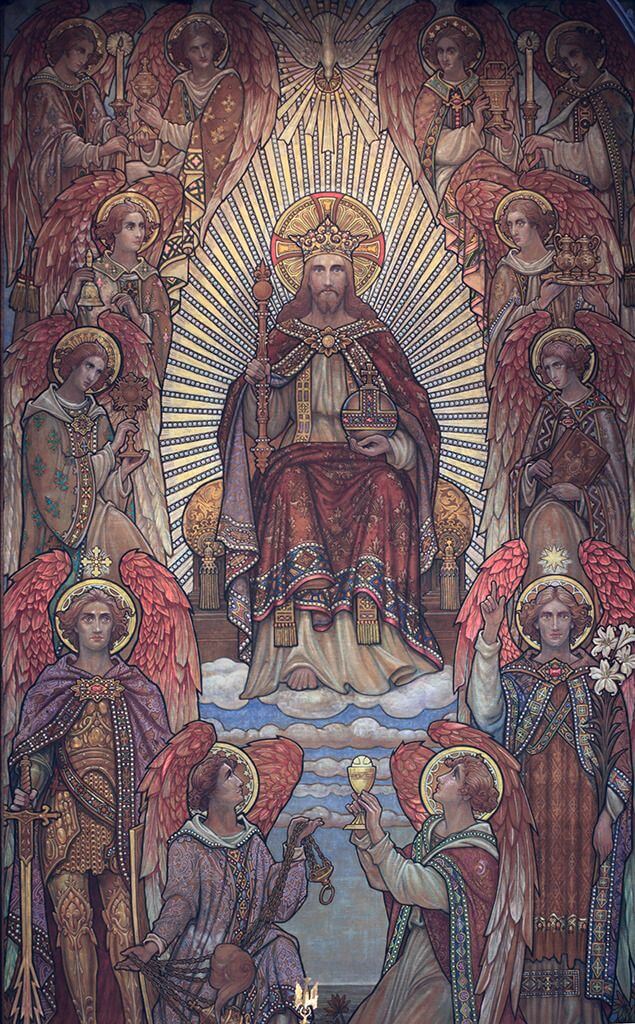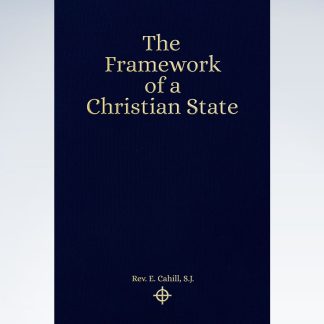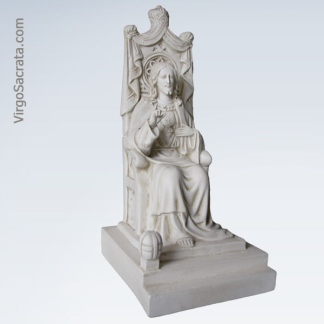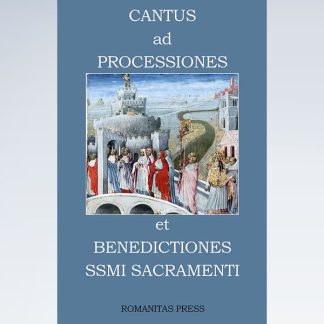

The Feast of Christ the King – Domini Nostri Jesu Christi Regis – was established by Pope Pius XI in 1925 in the encyclical Quas Primas, as an antidote to secularism, a way of life which leaves God out of man’s thinking and living and organizes his life as if God did not exist. The feast is intended to proclaim in a striking and effective manner Christ’s royalty over individuals, families, society, governments, and nations.
“If to Christ our Lord is given all power in heaven and on earth; if all men, purchased by his precious blood, are by a new right subjected to his dominion; if this power embraces all men, it must be clear that not one of our faculties is exempt from his empire. He must reign in our minds, which should assent with perfect submission and firm belief to revealed truths and to the doctrines of Christ. He must reign in our wills, which should obey the laws and precepts of God. He must reign in our hearts, which should spurn natural desires and love God above all things, and cleave to him alone. He must reign in our bodies and in our members, which should serve as instruments for the interior sanctification of our souls, or to use the words of the Apostle Paul, as instruments of justice unto God.
The right which the Church has from Christ Himself, to teach mankind, to make laws, to govern peoples in all that pertains to their eternal salvation—that right was denied [in the Enlightenment era]. Then gradually the religion of Christ came to be likened to false religions and to be placed ignominiously on the same level with them. It was then put under the power of the State and tolerated more or less at the whim of princes and rulers. … There were even some nations who thought they could dispense with God, and that their religion should consist in impiety and the neglect of God. The rebellion of individuals and States against the authority of Christ has produced deplorable consequences.” ~ Pope Pius XI, Quas primas.
In the traditional Roman calendar, the feast date falls on the last Sunday of the month of October – the Sunday, which immediately precedes the Feast of All Saints. Royal Praises are chanted during the Mass: “Christus vincit! Christus regnat! Christus imperat!” – “Christ conquers! Christ reigns! Christ commands!”
Laudes Regiæ
Laudes Regiæ is an ancient hymn which dates back to 1080. It was sung at the closing of the Council called by order of William the Conqueror. Gregory VII was Pope and Philip I King of France.
At the base of the obelisk in St Peter’s Square, Rome is the phrase:
Cristus vincit, regnat, imperat; ab omni malo plebem suam defendat.
Christ conquers, Christ reigns, Christ rules. May He defend His people from all evil.

-
The Framework of a Christian State: An Introduction to Social Science€52.10
-
The Reign of Christ the King by Michael Davies€5.55
-
Christ The King Seated Statue 22″€347.32
-
“They Have Uncrowned Him” by Archbishop Lefebvre€18.33
-
Chants of the Church by the Monks of Solesmes€24.12
-
Chants for Processions and Benedictions of the Most Blessed Sacrament€15.44
VIRGÓ SACRÁTA is a Christian mission-driven online resource and shop inspired from the beauty of Catholic faith, tradition, and arts. Our mission is to “Restore All Things to Christ!”, in continuing the legacy of Pope St. Pius X under the patronage of the Blessed Virgin Mary. “Who is she that cometh forth as the morning rising, fair as the moon, bright as the sun, terrible as an army set in battle array?” O Mary, conceived without sin, pray for us who have recourse to Thee.








